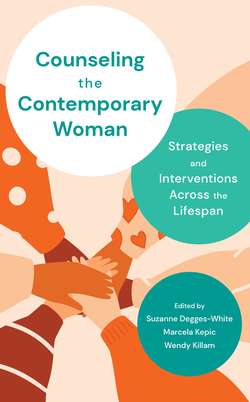Читать книгу Counseling the Contemporary Woman - Suzanne Degges-White - Страница 71
На сайте Литреса книга снята с продажи.
Brief Conceptualization
ОглавлениеBefore any further work, here is a current developmental understanding of Sofia as a sixteen-year-old, Hispanic, homeless adolescent with only one parent, a history of past physical abuse, and currently residing in a facility for adolescent girls.
Sofia is in a unique position that many adolescent girls do not experience on a daily basis. Her reality is less than her ideal and is causing her significant distress. Everyone has a need to belong—especially teenagers. Sofia does not have a stable residence, only one parent present in her life, and no friends. Her identity is being shaped by rather tough circumstances over which she has little control. She does not want to be homeless and without friends. This is causing her to feel shame and embarrassment; therefore, she avoids any contact with classmates and does not want to present in front of the class. Such feelings undermine her self-esteem and feelings of competence. She partially satisfied the need for independence by leaving home and being placed in the independent living facility for teenage girls, but that was not as satisfying as she might have expected it to be. She wishes for a real home and an improved relationship with her mother. Further, her sense of self as a competent young woman was attacked by boys when they made fun of her for not having art supplies, something that is beyond her control due to her financial situation. As a result of multiple factors, she withdraws, refuses to participate, does not do her schoolwork, and has a very low sense of worth. Therefore, it will be crucial for her counselor to address developmental tasks such as identity, competence, and independence over the course of her counseling.
